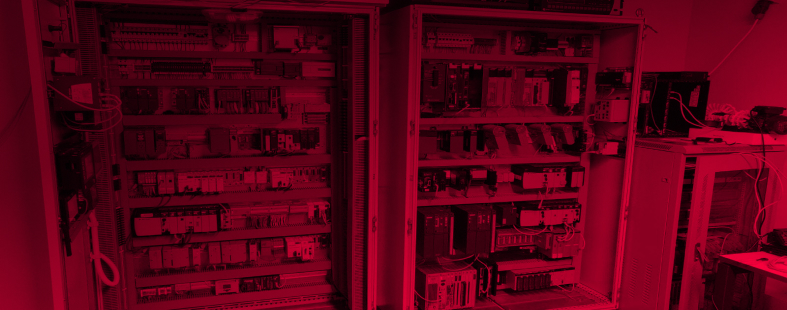
Team82 has made freely available a tool called AccessDB Parser
The Python-based AccessDB Parser supports software testing, fuzzing, research, and other activities
It supports Microsoft Access versions 1995 up to 2010
Team82 today shares AccessDB Parser, a new, purpose-built tool we developed to support activities such as testing, automation, fuzzing, and reverse-engineering research, among others. The standalone tool—which can be used to quickly parse through Microsoft AccessDB files (.mdb/.accdb)—is fully written in Python, thus eliminating any external binary dependencies.
Our parser supports Microsoft Access versions 1995 up to 2010. Microsoft Access is a database management system from Microsoft that combines the relational Microsoft Jet Database Engine with a graphical user interface (GUI) and software-development tools. It is a member of the Microsoft Office suite of applications, included in the Professional and higher editions or sold separately.
According to Claroty Researcher Uri Katz, who led the development of AccessDB Parser, the initial purpose of the tool was to support Claroty Continuous Threat Detection (CTD)'s Application DB (AppDB) scanning capabilities. Unique to Claroty, AppDB provides a safe, effective, and non-intrusive method for identifying and managing assets in operational technology (OT) environments by parsing artifacts such as programmable logic controller (PLC) and remote terminal unit (RTU) project configuration files.
As part of Claroty's efforts to deliver the highest level of visibility into OT environments, we sought to develop a tool that would allow AppDB to process additional types of SCADA project files containing .mdb files. In addition, we wanted this tool to allow us to create multiple tests, verify test results, and automate some of our testing processes.
To address these needs, we decided to invest time in developing our own parsing tool, below, which could easily be modified and improved on an ongoing basis as our needs evolve. We ensured to make the tool open-source, knowing that it would likely prove useful for other reverse engineers.
C Implementation: Our library of tools relies heavily on the well-documented work of mdb-tools, which can be accessed here.
Java Implementation: We also benefited greatly from Jackcess, an all-Java library for reading from and writing to MS Access databases, currently supporting versions 2000-2016. Jackcess is not an application and does not have a GUI. Rather, it is intended to help developers build Java applications.
OLE fields are currently not supported.
Only a subset of memo fields are parsed.
This library was tested on a limited subset of database files. Due to the differences between database versions and the complexity of the parsing, we expect to find more parsing edge-cases.
To help us resolve issues faster, please provide as much data as possible when opening an issue, including the DB file if possible, as well as full trace, including log messages.
Click here to watch a demo of Claroty AccessDB Parser
Click here to download the tool on Claroty's GitHub repository

CWE-547 USE OF HARD-CODED, SECURITY-RELEVANT CONSTANTS:
Optigo Networks Visual BACnet Capture Tool and Optigo Visual Networks Capture Tool version 3.1.2rc11 are vulnerable to an attacker impersonating the web application service and mislead victim clients.
Optigo Networks recommends users to upgrade to the following:
CVSS v3: 7.5
CWE-288 AUTHENTICATION BYPASS USING AN ALTERNATE PATH OR CHANNEL:
Optigo Networks Visual BACnet Capture Tool and Optigo Visual Networks Capture Tool version 3.1.2rc11 contain an exposed web management service that could allow an attacker to bypass authentication measures and gain controls over utilities within the products.
Optigo Networks recommends users to upgrade to the following:
CVSS v3: 9.8
CWE-547 USE OF HARD-CODED, SECURITY-RELEVANT CONSTANTS:
Optigo Networks Visual BACnet Capture Tool and Optigo Visual Networks Capture Tool version 3.1.2rc11 contain a hard coded secret key. This could allow an attacker to generate valid JWT (JSON Web Token) sessions.
Optigo Networks recommends users to upgrade to the following:
CVSS v3: 7.5
CWE-912 HIDDEN FUNCTIONALITY:
The "update" binary in the firmware of the affected product sends attempts to mount to a hard-coded, routable IP address, bypassing existing device network settings to do so. The function triggers if the 'C' button is pressed at a specific time during the boot process. If an attacker is able to control or impersonate this IP address, they could upload and overwrite files on the device.
Per FDA recommendation, CISA recommends users remove any Contec CMS8000 devices from their networks.
If asset owners cannot remove the devices from their networks, users should block 202.114.4.0/24 from their networks, or block 202.114.4.119 and 202.114.4.120.
Please note that this device may be re-labeled and sold by resellers.
Read more here: Do the CONTEC CMS8000 Patient Monitors Contain a Chinese Backdoor? The Reality is More Complicated….
CVSS v3: 7.5
CWE-295 IMPROPER CERTIFICATE VALIDATION:
The affected product is vulnerable due to failure of the update mechanism to verify the update server's certificate which could allow an attacker to alter network traffic and carry out a machine-in-the-middle attack (MITM). An attacker could modify the server's response and deliver a malicious update to the user.
Medixant recommends users download the v2025.1 or later version of their software.
CVSS v3: 5.7